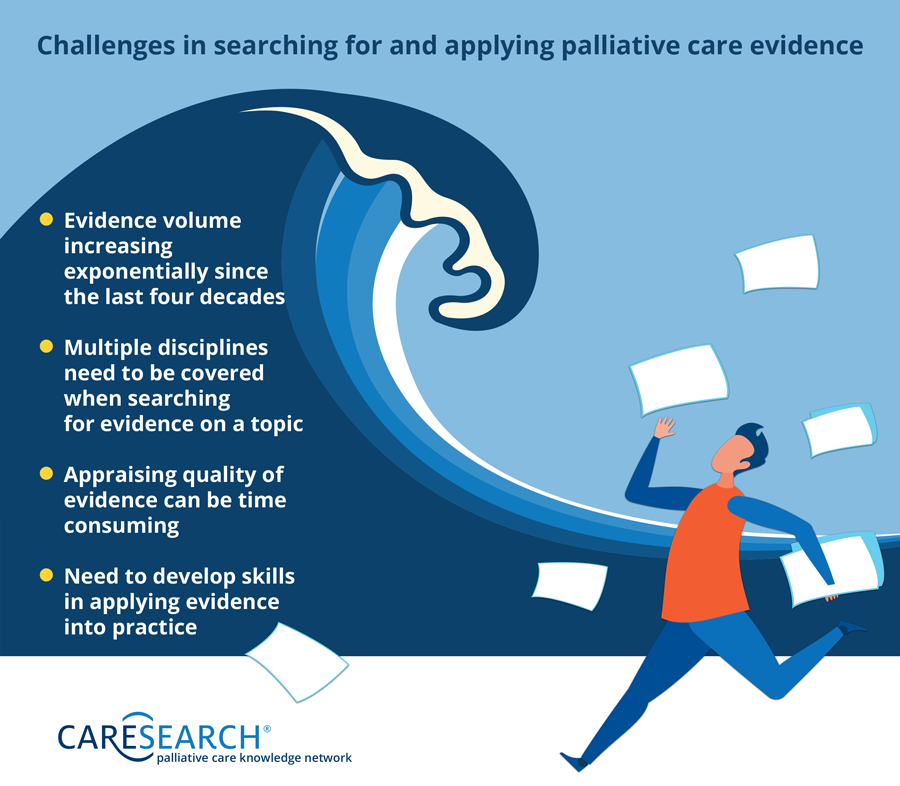People with life-limiting illness or at the end of life often have complex chronic conditions [1] that require comprehensive and ongoing consideration of their physical, psychological, social, emotional and spiritual needs.
To support them to live each moment of their lives as fully as possible, the palliative care that they receive - whether they are at home, hospital, or in an aged care facility - should be quality, person-centred and evidence based. [2]
Evidence can guide our choice of the most appropriate treatment and services, including support for carers and family members. It highlights the potential benefits and harms of a treatment or intervention, thereby helping us make informed decisions based on the most likely outcomes. [3]
Calls for embedding evidence in palliative care provision
Evidence is important in providing quality person-centred palliative care. The 2018 National Palliative Care Strategy lists Data and Evidence as one of its goals. It highlights evidence and data collection as integral parts of evaluating services across all care settings, and in continuous quality improvement. [2]
The National Standards released by Palliative Care Australia highlight that the provision of palliative care should be informed by evidence and based on the assessed needs of the person [4] while the new Aged Care Quality Standards cite evidence as a key component of best practice in personal and clinical care. [5]
The Australian Commission on Safety and Quality in Health Care outlines the importance of evidence in shared decision making in the National Consensus Statement: essential elements for safe and high-quality end-of-life care. [6]
